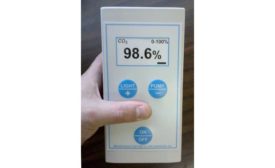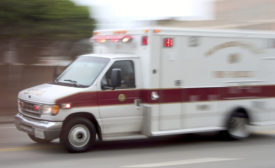Home » occupational exposure
Articles Tagged with ''occupational exposure''
From CEA Instruments, Inc.
New GD-888 now monitors all ranges of carbon dioxide
February 1, 2019
Become a Leader in Safety Culture
Build your knowledge with ISHN, covering key safety, health and industrial hygiene news, products, and trends.
JOIN TODAYCopyright ©2025. All Rights Reserved BNP Media.
Design, CMS, Hosting & Web Development :: ePublishing







